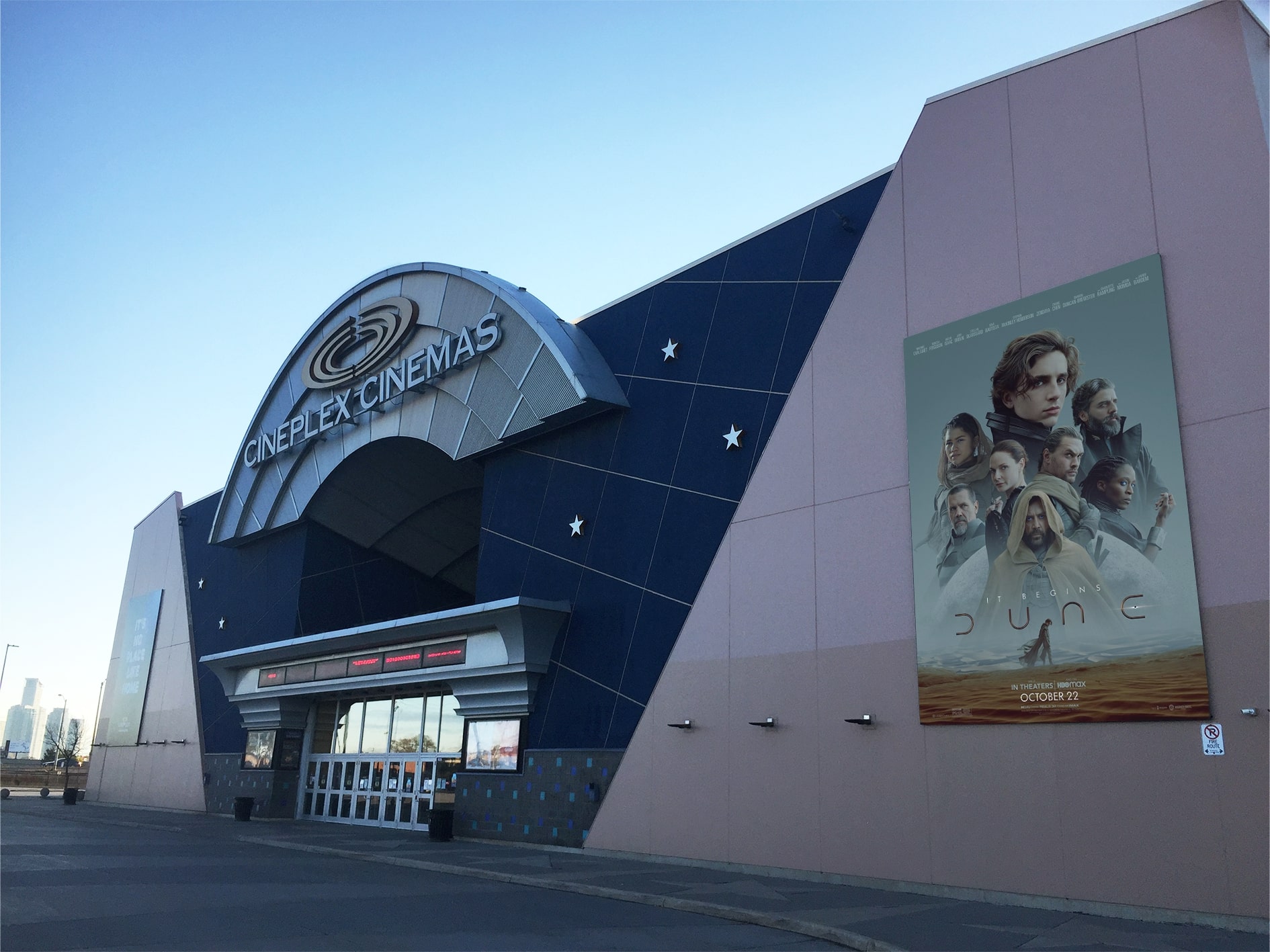We’ve all heard about Dune, the box office hit that packed theatres when it came out in October 2021. It marked a return to cinema, both literally and metaphorically. For months in advance, it was advertised through billboards, movie previews, and Timothee Chalamet’s Instagram. But after the whole 2 hours and 35 minutes were over, was it all it was cracked up to be?
Dune was a big deal before it was even finished, with good reason. When Frank Hubert’s novel Dune – which the film is based on – was published in 1965, it became an instant classic of science fiction. It approached the genre with humanity, depicting a distant future where humans still grappled with the relationship between religion and politics, the ethics of monarchy, and the way physical land shapes cultures and their people. All that in only 800 pages.
Dune was a landmark novel beloved by an entire generation of sci-fi readers. That made it perfect for a film adaptation by the renowned master of the absurd, David Lynch, in 1984. The improving special effects of the time helped, and the film’s art design is praised to this day. But the performances of the film’s actors (namely, Sting - yes, the musician) and the feel of a 10-hour film packed into 2 hours, thanks to Lynch’s 4-hour cut being vetoed, resulted in a mess of a movie that lost millions of dollars at the box office. Today, Lynch still considers the film one of his greatest failures.
For 34 years, no one else made a real attempt at Dune. So when Denis Villenueve announced that he was slated to direct a new version in 2018 – fresh off of critically-acclaimed Arrival and Blade Runner 2049 – hopes were high. He even announced the initial decision to make the film in two parts, ensuring fans wouldn’t have to deal with another Lynch-like result.
The revelations that stars like Timothee Chalamet and Zendaya had signed on only added more fuel to the already huge Dune fire. It seemed that a pop culture obsession and cinematic masterpiece might combine to create one massive, unstoppable blockbuster. Even the pandemic delaying Dune’s release date from December 2020 to October 2021 didn’t bust its flow; it created a kind of long-haul buzz, like getting enthusiastic about your birthday a month in advance. It created hype.
The novelty of Hubert’s book and the failure of Lynch’s film attempt helped make Dune so anticipated. If Lynch couldn’t do it, who could? It made Villenueve’s attempt feel all the more risky. Jason Momoa, Oscar Isaac and Rebecca Ferguson were added to the cast, and forget subtlety – if the film tanked, the world would know.
When Dune came out, audiences were prepared to be wowed. And so they were. The cinematography, the score, the performances, the production design, and the costume design (among other things) had praise pouring in left and right. Not to mention that Dune dominated the box office on its opening weekend with a smashing $47 million. It was official- Dune had been received and loved, and the hype was worth it.
Or was it?
When I saw Dune opening weekend, I thought it was beautiful. The cinematography was larger than life; the performances were applaudable; the score was – in traditional Hans Zimmer fashion – transporting. In all respects, it was a beautiful film.
But was it everything I’d expected of it? Was it phenomenal, best-ever great, like the level of hype around it’s release had promised? The simple answer is no.
For a film so advertised and talked about, I’d expected genuine perfection, or close to it. I wasn’t expecting a flat portrayal of the plot, only 7 minutes of Zendaya, or an unfinished ending that teased a sequel without ever providing a full story arc. I was disappointed. The film had been advertised and word-of-mouthed as a masterpiece, and it simply wasn’t.
If I hadn’t known that Dune was as anticipated as it was, I would’ve thought it was better. I would’ve been pleasantly surprised by the cinematography and performances, casually unimpressed by the lineralness of the plot, but pleased nonetheless. But knowing the film had already been established as a Big Deal™ almost made me search for flaws to point out. For example, there were a few too many thousand-yard stares, shots of sand blowing in the wind, and blank, angry faces for my liking. Those shots looked tacky and suggestive of more depth than they actually possessed. If I hadn’t known of Dune’s preconceived excitement, I might’ve been less critical and thought those shots were emotionally contemplative.
It seemed to me that Dune’s quiet downfall was its hype. It built unattainable expectations for the film. It also seemed like no one was ready to admit the film’s flaws, not after such an extensive wait. It’s like it would be almost personally demoralizing to quash one’s own excitement with critiques.
So when I see raving reviews about Dune, I think twice about their validity. Do people think the film’s great because it’s really great, or because they expected it to be, or because it seems like everyone else likes it? It raises the question of whether wide anticipation and advertising damage the art of a film and the truth of its merit. At what point does a film stop being a film and become a blockbuster?
I won’t go as far to say that Dune was bad, because it wasn’t. It was in many ways a marvel of set design, cinematography, and performance. But that doesn’t mean that it was great.
Of course, it’s still going to win an Oscar.
Image taken by Aidan Schreder
